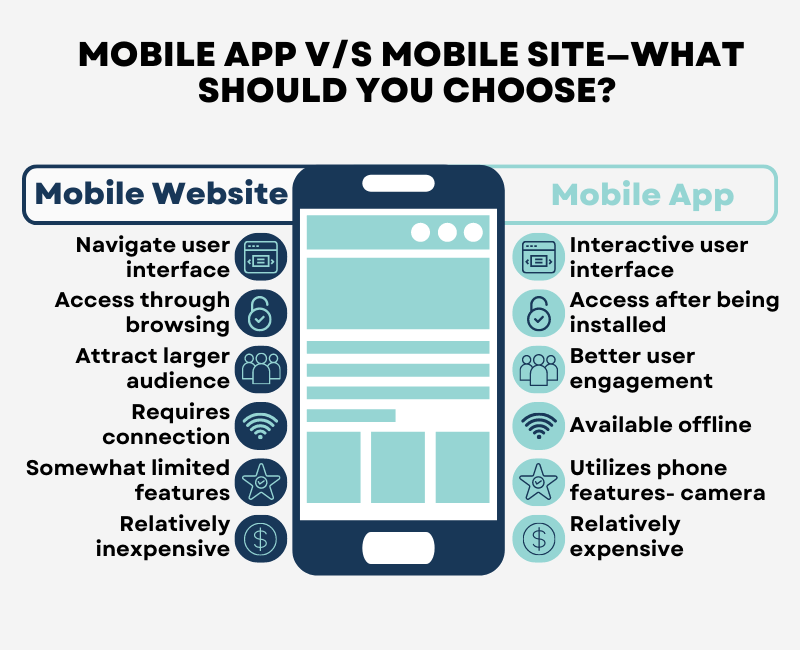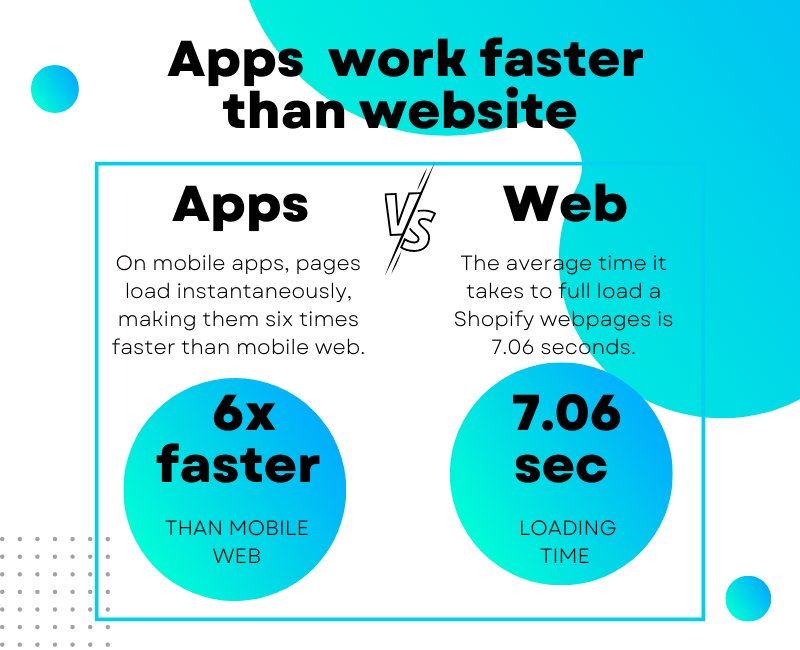Why Mobile Apps Are Essential for Businesses: More Than Having Just a Website
In today’s digital landscape, the debate between having a mobile app versus just a website is more relevant than ever. While a website is undoubtedly a important aspect of any business's online presence, a mobile app offers unique advantages that can drive engagement, boost customer loyalty, and ultimately, increase revenue. In this blog, we’ll explore why a mobile app is essential for businesses, and how it can offer more than just a website.
1. Enhanced User Experience
One of the primary reasons mobile apps have become indispensable is the superior user experience they offer. Apps are designed to be faster and more responsive than websites, providing a smoother, more intuitive experience. Mobile apps can leverage device features such as GPS, camera, and push notifications, which allow for personalized, real-time interactions that websites simply cannot match.
For example, a retail app can use GPS to notify users of nearby store promotions, while a fitness app can integrate with wearable devices to track and analyze health data. This level of interactivity and personalization enhances the user experience, making it more engaging and valuable.
2. Increased Accessibility and Convenience
Mobile apps are more accessible and convenient than websites. Once installed, they are just a tap away on a user’s home screen, making it easy to access content and services at any time, without the need to open a browser and type in a URL. This convenience is a significant factor in user engagement, as users are more likely to open an app than to visit a website.
Moreover, mobile apps work offline, allowing users to access certain features and content even without an internet connection. This is especially important in regions with unstable connectivity or for users who are on the go.

3. Higher Engagement and Retention Rates
Mobile apps are known for their ability to drive higher user engagement and retention rates compared to websites. Push notifications, one of the most powerful features of mobile apps, can remind users of upcoming events, promotions, or new content, encouraging them to re-engage with the app. These notifications can be personalized based on user behavior, preferences, and location, making them more relevant and effective.
Additionally, mobile apps allow for gamification, loyalty programs, and in-app purchases, which can further incentivize users to keep coming back. For example, a coffee shop app can offer rewards for frequent purchases, or a gaming app can provide daily challenges that keep users engaged.
4. Brand Presence and Customer Loyalty
A mobile app can significantly enhance a brand’s presence and foster customer loyalty. An app on a user’s home screen serves as a constant reminder of the brand, increasing the likelihood of regular interaction. This is an opportunity for businesses to stay top-of-mind and build a deeper connection with their audience.
Moreover, mobile apps can offer personalized content and experiences that build trust and loyalty. For instance, an e-commerce app can provide personalized product recommendations based on past purchases or browsing history, making the shopping experience more personalized and enjoyable.
5. Better Data Collection and Analysis
Mobile apps offer more robust data collection capabilities than websites. They can track user behavior in real-time, gathering valuable insights into how users interact with the app, what features they use most, and where they drop off. This data can be used to optimize the user experience, improve app performance, and tailor marketing strategies.
For businesses, this means a deeper understanding of customer needs and preferences, which can lead to more effective decision-making and better customer service.
6. Competitive Advantage
In a market where consumers increasingly expect seamless, personalized experiences, having a mobile app can give businesses a competitive edge. Companies that offer a mobile app in addition to a website can differentiate themselves from competitors, showing that they are committed to providing a superior customer experience.
For example, a restaurant with a mobile app that allows users to make reservations, view the menu, and receive exclusive offers will likely attract more customers than a competitor with only a website.

Conclusion
While having a website is essential, a mobile app offers unique advantages that can significantly enhance a business’s online presence. From providing a better user experience to increasing engagement and loyalty, mobile apps are an essential tool for businesses looking to thrive in the digital age. By investing in a mobile app, businesses can not only meet but exceed customer expectations, ultimately driving growth and success.